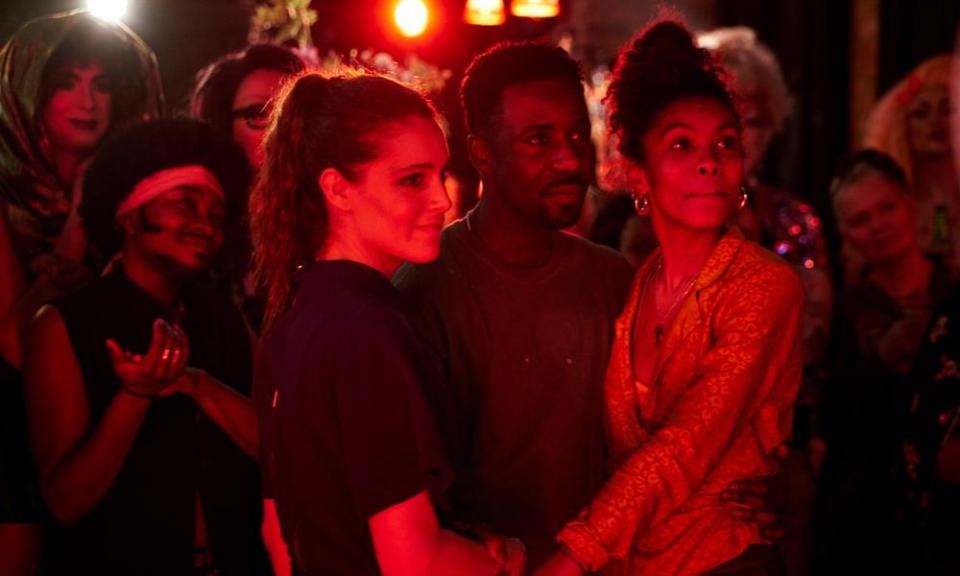'Trigonometry shows that polyamory is about love': Paapa Essiedu's lockdown TV

When lockdown began, I spotted Trigonometry (BBC Two) on iPlayer and decided to give it a go. It is an excellent eight-part drama about a couple who both fall in love with their lodger; it is like any other love story, just with an added element that makes it a little bit more extraordinary. The writing is fantastic, it is beautifully shot in an otherworldly style, and the three central performances (from Thalissa Teixeira, Gary Carr and Ariane Labed) are wicked - there’s so much chemistry between the three of them. It draws you in as a viewer, and shows you the reality of polyamory in a non-judgmental, unsensational way.
I recently directed a play on the same theme called Either and, as part of the research, I got the actors to watch Louis Theroux’s documentary Altered States: Love Without Limits, which makes it sound like the most wild, hypersexual outskirts-of-society type existence. It is often seen as something really taboo and extreme; you don’t often see the idea of love being like a central pillar of that world or those relationships. I think that is what Trigonometry does that’s so brilliant: it teases out love as the thing that challenges and pushes and glues together these three characters along this journey.

I have also been watching Save Me Too, the follow-up to Lennie James’s mystery drama Save Me (Sky Atlantic/Now TV). What I love about the show is it has got this ambitious, high-stakes storyline within the reality and domestics of what is a very familiar part of London to me, a kind of “east London council estate boozer” world. There is something operatic about these characters screaming at the centre of this whirlwind of a story. The end of the first series was both satisfying and unsatisfying at the same time; it wasn’t a cliffhanger, but there was a situation where the hero of the story, played by James, was moving towards getting what he needed, and just when you thought it was all resolved, he found out it was something else entirely. The show is all about the quest: it’s high-drama, high-conflict, and characters are forced into situations where their options push and pull them in diametrically opposed directions, and people can get very badly hurt as a result of other people’s decisions.
The cast is mad, too: as well as Lennie James you’ve got Suranne Jones, Lesley Manville, Jason Flemyng and Stephen Graham in this second series; it’s like a roll call of like the finest actors in the country, all in one show.
Both of these series are a bit more conservative in their budgets than some of the American series I have been watching recently, like Ozark and The Wire, but they still have the same impact because of their brilliant, powerhouse performances. Along with the writing and how they’re shot, they show just how important and how brilliant British television can be.
Gangs of London starts on Thursday 23 April, 9pm, Sky Atlantic/Now TV

 Yahoo News
Yahoo News 
